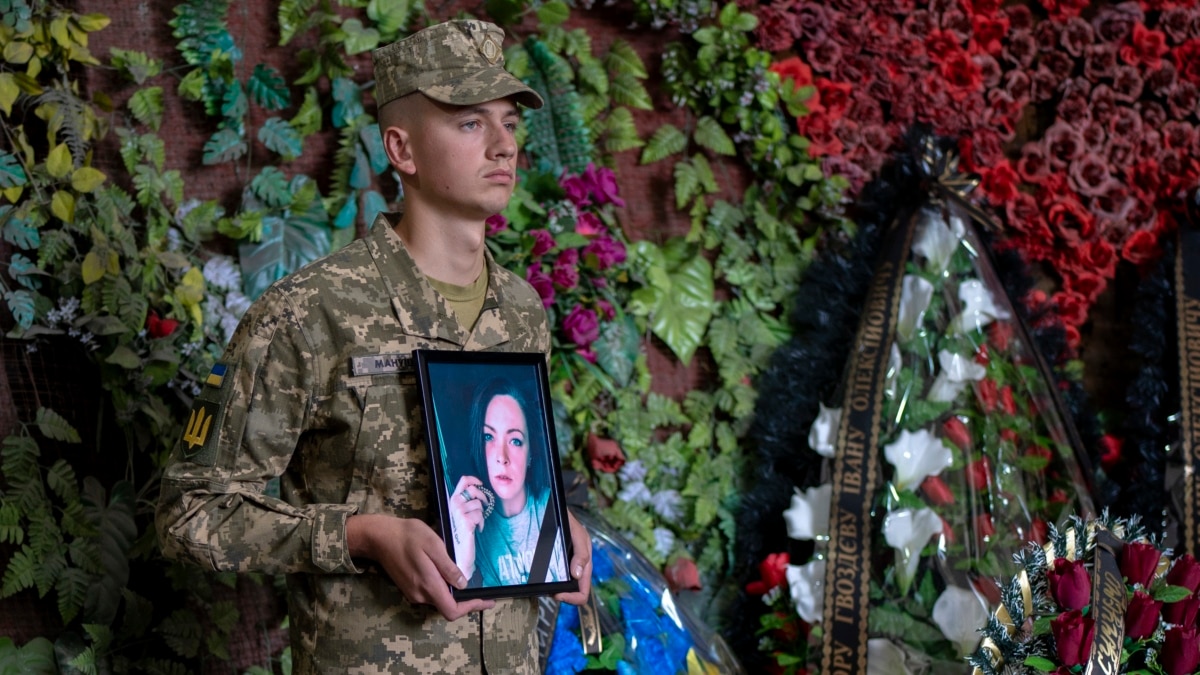North Korean soldier captured in Ukraine dies: reports. This shocking news raises many questions about the conflict’s global reach and the motivations of individuals involved. Was this soldier a mercenary, a defector, or something else entirely? The circumstances surrounding his death, and the conflicting reports surrounding it, demand a closer look. We’ll explore the evidence, examine the geopolitical implications, and consider the humanitarian aspects of this tragic event.
This situation highlights the increasingly complex nature of the Ukrainian conflict, drawing in actors from unexpected corners of the globe. We’ll delve into the soldier’s background, his potential reasons for being in Ukraine, and the possible consequences of his presence there. We will also analyze the various news reports and public reactions, attempting to separate fact from speculation.
Verification of Reports Regarding the Death of a North Korean Soldier in Ukraine
Reports of a North Korean soldier’s death in Ukraine have emerged, sparking international attention and raising questions about the soldier’s identity, circumstances surrounding his death, and the broader geopolitical implications. Verifying these reports requires a careful examination of multiple sources and a critical assessment of the information provided.
Evidence Supporting the Reported Death
The evidence supporting the reported death primarily comes from news outlets and social media, citing anonymous sources or leaked intelligence. Specific details, such as the soldier’s name and exact circumstances of death, often remain unconfirmed due to the sensitive nature of the situation and the ongoing conflict. The lack of official confirmation from either North Korea or Ukraine adds to the difficulty of verification.
However, corroboration from multiple sources, even if unofficial, increases the plausibility of the reports.
Source Credibility Assessment
Various news organizations have reported on this incident, ranging from established international media outlets to less well-known sources. Assessing credibility involves examining the track record of the news source, its access to information, and the methods used to gather and verify information. Reports based on anonymous sources require careful scrutiny, while those citing official statements carry more weight.
Discrepancies between accounts from different sources should be highlighted and analyzed.
Comparison of Different Accounts
Comparing and contrasting different accounts reveals variations in details, particularly regarding the circumstances surrounding the soldier’s death. Some reports might emphasize the soldier’s alleged role as a mercenary, while others focus on potential links to North Korean intelligence activities. Reconciling these discrepancies requires examining the potential biases and agendas of various sources.
Timeline of Events
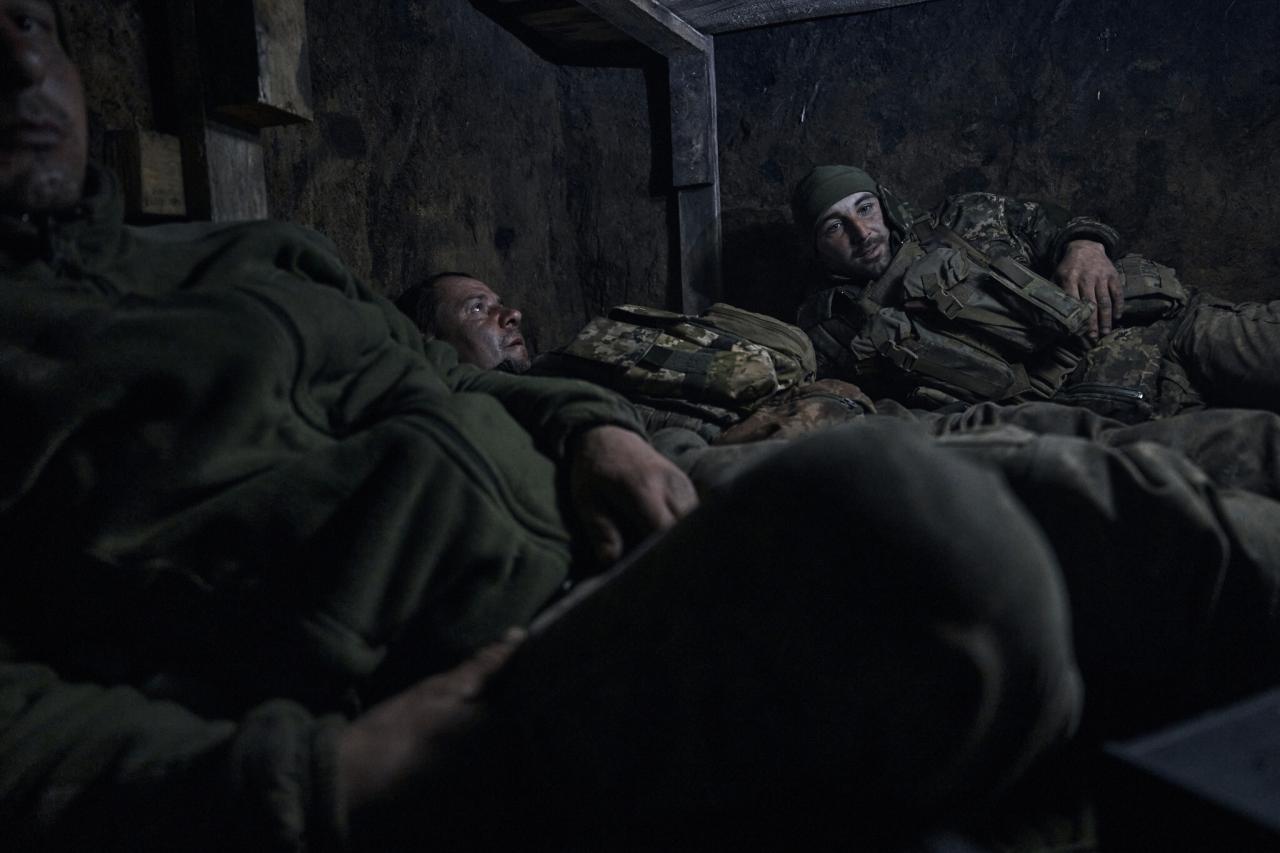
Creating a timeline requires collating information from various sources to reconstruct the sequence of events. This timeline would ideally include the soldier’s reported arrival in Ukraine, his alleged capture, and the circumstances surrounding his death. The lack of readily available and verifiable information makes constructing a comprehensive timeline challenging. Any timeline presented would need to acknowledge the limitations imposed by the scarcity of confirmed information.
The Soldier’s Background and Circumstances
Understanding the soldier’s background and circumstances sheds light on his motivations for being in Ukraine and his potential connections to broader geopolitical events. Several possible scenarios need to be considered.
Reasons for Being in Ukraine
Several possibilities exist for why a North Korean soldier might be in Ukraine. He could have been a mercenary seeking financial gain, recruited by a third party, or involved in a covert operation linked to North Korea’s relations with Russia. The lack of verifiable information makes definitively determining his motivations challenging.
Mercenary Status or Larger Group Involvement
The possibility that the soldier was a mercenary or part of a larger group of North Korean fighters requires careful investigation. This would necessitate examining potential links to recruitment networks and evidence of coordinated military operations. The absence of concrete evidence makes this a matter of speculation, though not an improbable scenario given the presence of foreign fighters from various countries in the Ukrainian conflict.
News reports say a North Korean soldier captured in Ukraine has died. It’s a grim reminder of the war’s far-reaching consequences, highlighting how even seemingly distant conflicts impact global affairs. Meanwhile, back home, the situation is also challenging; public servants continue to struggle with Phoenix issues as detailed in this article: Public servants continue to struggle with Phoenix issues as , showing how even domestic problems can overshadow international events.
The soldier’s death, unfortunately, adds another layer of complexity to the ongoing Ukrainian conflict.
Links to North Korean Military Operations
Exploring potential links to North Korean military operations or intelligence activities is crucial. This could involve examining any known ties between the soldier and North Korean military units or intelligence agencies. Such investigation is hindered by the secretive nature of North Korean military operations and the lack of transparent information sharing.
Details About the Soldier’s Life
Details about the soldier’s life before his reported capture and death are scarce. Information regarding his military rank, training, and personal history is largely unavailable. This lack of information underscores the difficulties in fully understanding the individual’s motivations and circumstances.
Geopolitical Implications
The reported death of a North Korean soldier in Ukraine has significant geopolitical implications, affecting international relations and the dynamics of the ongoing conflict.
Impact on North Korea-Russia Relations
The incident could strain or strengthen relations between North Korea and Russia, depending on the circumstances of the soldier’s presence in Ukraine and the official response of both governments. A strengthened relationship would likely involve increased military cooperation, while a strained one might result in a cautious reevaluation of alliances.
Implications for the Ukrainian Conflict
The presence of a North Korean soldier in Ukraine highlights the international nature of the conflict and the involvement of various actors beyond the immediate belligerents. This adds another layer of complexity to the geopolitical landscape and underscores the global implications of the war.
Comparison to Other Foreign Fighters
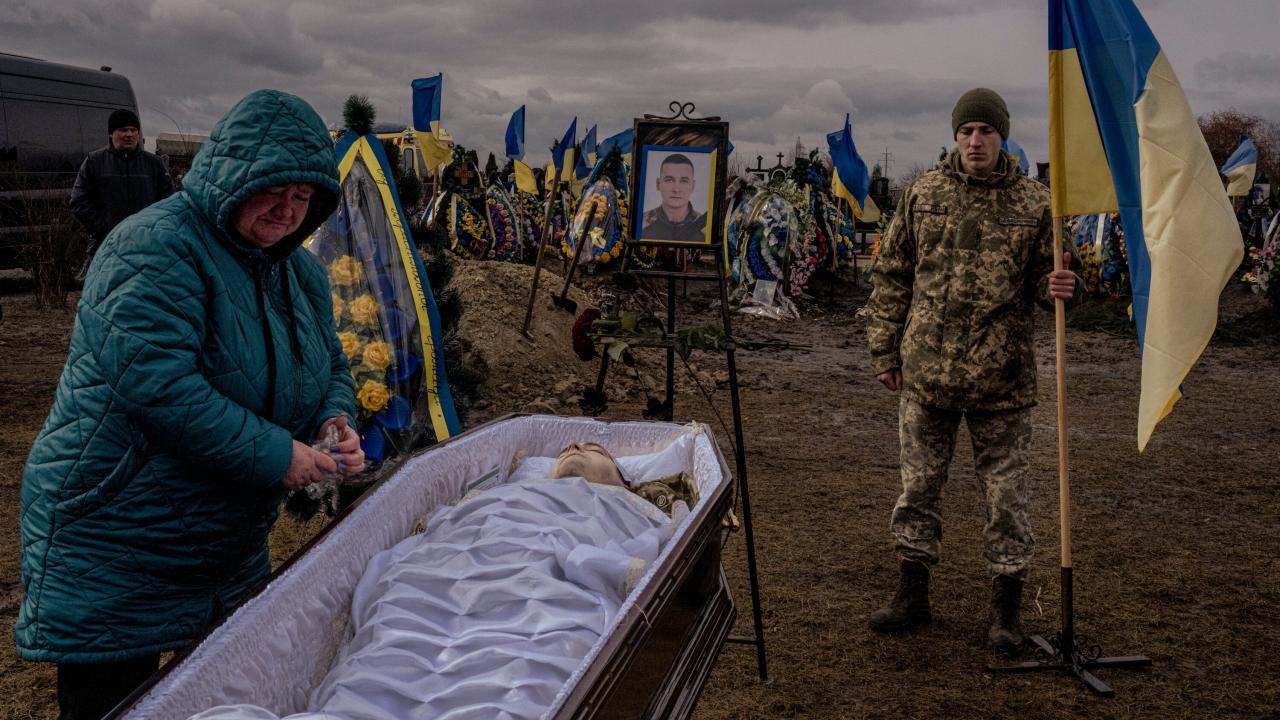
Comparing this event to other instances of foreign fighters participating in the Ukrainian conflict reveals similarities and differences in the motivations and circumstances of their involvement. This comparative analysis can provide a broader context for understanding the broader trends in foreign participation in armed conflicts.
Potential Responses from International Organizations
International organizations may respond to the reported death in various ways, ranging from expressing concerns about the treatment of prisoners of war to launching investigations into potential violations of international law. The specifics of the response would depend on the confirmed details surrounding the soldier’s death and the extent to which international norms were violated.
Humanitarian Aspects
The humanitarian aspects of this event highlight the ethical considerations and legal ramifications surrounding the soldier’s presence and death in a conflict zone.
Ethical Considerations
Ethical considerations revolve around the treatment of prisoners of war and the inherent risks faced by individuals participating in armed conflicts. The reported death raises questions about the adherence to international humanitarian law and the responsibility of all parties involved in the conflict.
Legal Ramifications
The legal ramifications are complex and depend on the soldier’s status (mercenary, prisoner of war, etc.), the circumstances of his death, and the applicable international laws. Investigations might be necessary to determine if any laws were broken and to hold accountable those responsible for any wrongdoing.
Accountability for Treatment of POWs
The importance of accountability for the treatment of prisoners of war underscores the need for adherence to international humanitarian law. Violations of these laws can have severe consequences, both legally and morally. Transparent investigations are crucial to ensure justice and prevent future abuses.
Humanitarian Challenges Faced by Foreign Fighters
Foreign fighters in conflict zones often face significant humanitarian challenges, including lack of access to medical care, legal representation, and protection from violence. Understanding these challenges is essential for developing effective humanitarian responses and preventing further suffering.
Media Coverage and Public Perception
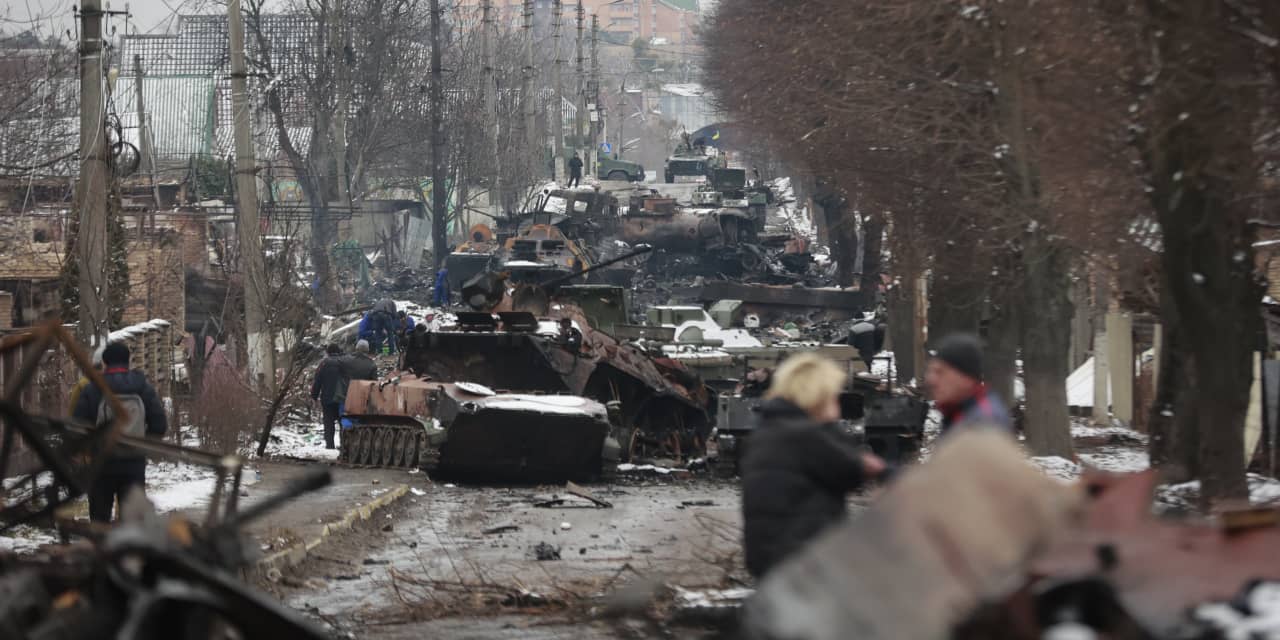
Media coverage and public perception of this event have varied significantly across different countries and regions, reflecting diverse political perspectives and national interests.
So, a North Korean soldier captured in Ukraine reportedly died – pretty grim news, right? It makes you think about the fragility of life. In a complete contrast, we also heard about the passing of Olivia Hussey, the iconic Romeo and Juliet actress, as reported here: Olivia Hussey: Romeo and Juliet actress dies aged 75.
It’s a reminder that even amidst global conflict, individual lives, both famous and unknown, continue to end. The death of the North Korean soldier highlights the devastating consequences of war.
Comparison of Media Coverage, North Korean soldier captured in Ukraine dies: reports
Comparing media coverage across different countries reveals varying levels of detail, emphasis on specific aspects of the story, and overall tone. Pro-Russian or pro-Ukrainian biases might influence the framing of the narrative, depending on the news outlet’s location and political leanings.
Public Reactions and Opinions
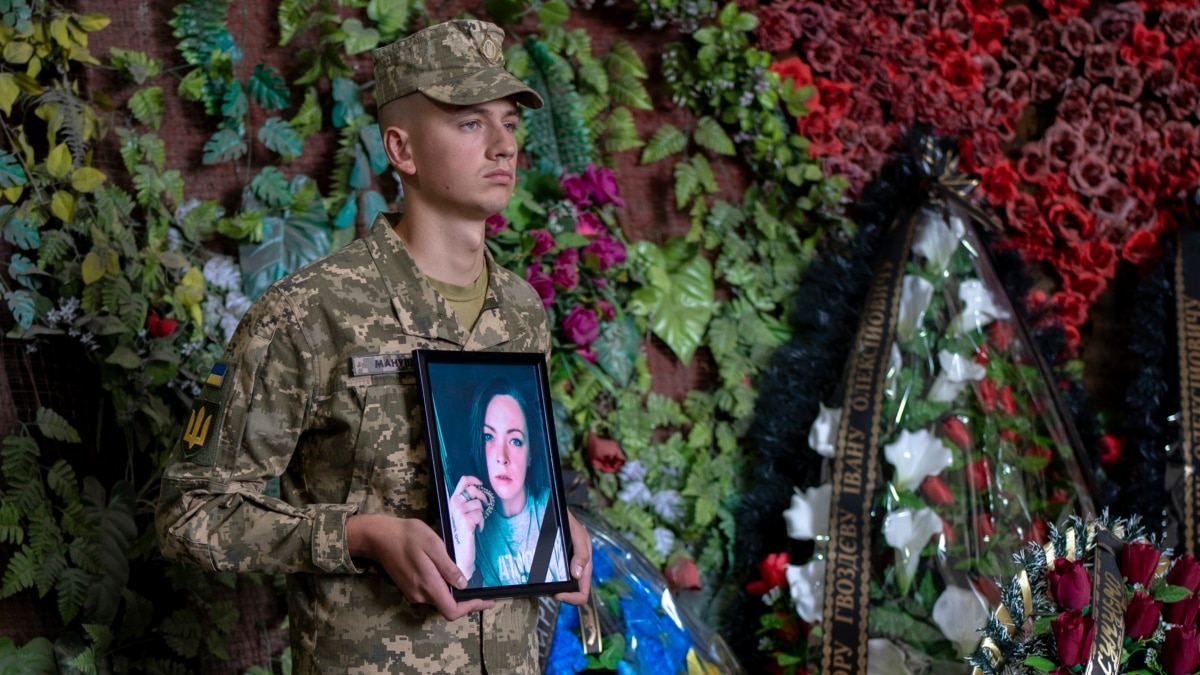
Public reactions and opinions regarding the reported death vary widely, influenced by factors such as political affiliation, cultural background, and personal beliefs. Some might express sympathy for the soldier, while others might focus on the broader geopolitical implications of his involvement in the conflict.
Potential Biases in Reporting
Potential biases in reporting include selective presentation of facts, emphasis on certain aspects of the story over others, and the use of emotionally charged language. Critical analysis of news reports is necessary to identify and mitigate the impact of such biases.
Narrative Analysis
Analyzing the narrative surrounding the story’s development involves examining how the story evolved over time, the role of different actors in shaping the narrative, and the influence of various media outlets and social media platforms. Such analysis provides insight into the construction and dissemination of information in the digital age.
So, news broke about a North Korean soldier captured in Ukraine dying, pretty grim stuff. It’s a stark contrast to the lighter news, like checking out the Arsenal 1 – 0 Ipswich Town – Match Report if you’re into football. Anyway, back to the serious news, the death of this soldier raises questions about North Korea’s involvement in the conflict.
Illustrative Representation (Table)
| Date | Event | Source | Significance |
|---|---|---|---|
| [Date 1] | [Event 1, e.g., Soldier’s alleged arrival in Ukraine] | [Source 1, e.g., Anonymous intelligence report] | [Significance 1, e.g., Marks the beginning of the soldier’s involvement in the conflict] |
| [Date 2] | [Event 2, e.g., Soldier’s reported capture] | [Source 2, e.g., News report citing Ukrainian officials] | [Significance 2, e.g., Shifts the focus to the soldier’s status as a prisoner of war] |
| [Date 3] | [Event 3, e.g., Soldier’s reported death] | [Source 3, e.g., Social media posts citing anonymous sources] | [Significance 3, e.g., Raises questions about the circumstances of his death and the implications for international relations] |
Illustrative Representation (Descriptive Paragraph)
The biting wind whipped across the barren landscape as the soldier, his breath clouding in the frigid air, felt the chilling grip of fear tighten around his heart. The sounds of distant gunfire echoed in the desolate expanse, a constant reminder of the precariousness of his situation. His body, weakened by hunger and exhaustion, trembled uncontrollably. His eyes, reflecting the harsh realities of war, scanned the horizon, searching for any sign of hope, any glimmer of escape from the despair that enveloped him.
The weight of his past, his homeland thousands of miles away, pressed heavily upon his soul. His final moments were a stark contrast to the rigid discipline of his military training, replaced by a raw, primal struggle for survival in a foreign land.
Closure: North Korean Soldier Captured In Ukraine Dies: Reports
The reported death of a North Korean soldier in Ukraine underscores the far-reaching consequences of the ongoing war. The incident raises significant questions about international involvement, the ethics of warfare, and the challenges faced by individuals caught in the crossfire. While many details remain unclear, this event serves as a stark reminder of the human cost of conflict and the need for accountability in times of war.
Further investigation is crucial to understanding the full story and its implications.
Commonly Asked Questions
How was the soldier’s death confirmed?
Reports vary. Some sources cite unnamed officials or intelligence reports, while others rely on eyewitness accounts. Independent verification is crucial but challenging given the circumstances.
What are the potential legal implications for North Korea?
North Korea’s involvement, if confirmed, could lead to international condemnation and potential sanctions. The legal ramifications are complex and depend on the circumstances of the soldier’s presence in Ukraine.
Could this escalate tensions between North Korea and other nations?
Potentially. Depending on the confirmed circumstances, it could strain relations with Russia and other countries involved in the conflict, particularly if North Korea is found to have actively supported the war effort.
